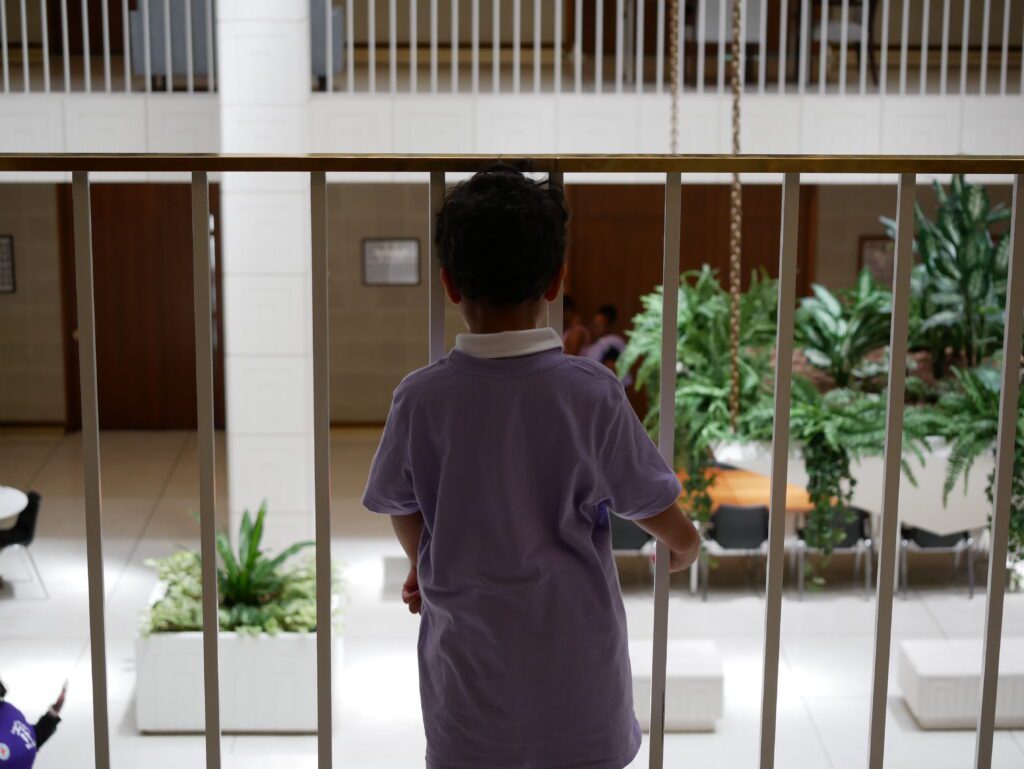A legislative win, a promise for later
Early Bird readers, hello again. Newcomers, welcome! If you were forwarded this email, you can sign up here to receive it every two weeks, and join our conversation on issues facing North Carolina’s young children and those who support them. If you’re already a subscriber, please help us reach more people by sharing this with your friends and co-workers interested in early childhood education.

Advocates are calling last week’s passage of relief funding “a huge win for child care.” Days before the official end of federal stabilization funding, state legislators passed a bill with $67.5 million to continue reduced compensation grants through December.
The House passed the measure, which now heads to Gov. Roy Cooper for his signature, the same day child care providers and other advocates were arrested while rallying at the legislature for more funding.
The bill directs the state Department of Health and Human Services (DHHS) to spread the funding over the first two quarters of the fiscal year at a reduced rate from what programs have been receiving. Officials say the current payments cost the state $45 million to 50 million per quarter.
“Reduced stabilization and compensation grants will likely lead to more child care closures in the near future,” a DHHS spokesperson said in a statement. “The $67.5M provided to NCDHHS is insufficient to fully cover the first two quarters of the fiscal year.”
It’s worth noting that child care funding was one of the only items legislators decided to address with funding bills before leaving Raleigh for the coming weeks. And Rep. Donny Lambeth, R-Forsyth, said this funding is aimed to last until legislators can agree on a budget later this year, implying that more child care funding would be allocated at that point.
“You’ve all heard about the child care cliff,” Lambeth said. “July 1 is an important day because funding does stop. And what this amendment does is adds in to allow funds to be allocated at least through the first quarter. It’s in our budget. It’s just prorated for the first quarter, with a hope and expectation that we’ll be back here sometime before that fund runs out to be able to pass a budget.”
Let’s take a step back. Why does all of this matter?
Child care programs have been using the federal funding as a lifeline to help make ends meet. In an industry economists describe as a broken market, programs struggle to provide high-quality care and education at a price that is affordable for parents. For decades, the market has been kept afloat by high prices for parents and low wages for teachers.
Since the pandemic, programs have used federal funding to retain teachers with slightly higher wages as other industries cut costs and raised wages. With that funding ending, programs will have to make up that gap somehow (higher tuition for parents, lower wages for teachers). Both of those options could lead to closures, since many parents can’t afford to pay more and teachers can’t afford to make less. In fact, 30% of child care providers responding to one survey said they expect to close at some point without more funding. Now that the state legislature provided some relief to replace the federal funds, programs will be adjusting their budgets to see just how much longer they can make that equation work.
We know high-quality child care and early education is not “day care” or “babysitting” — it’s vital for children, now and in the future. We also know it’s important for businesses’ success and for the economic prosperity of the entire state. We’re looking past short-term relief and asking what a long-term solution for the state looks like.
I will be taking a sabbatical in July and through mid-August. EdNC provides its employees with this benefit after they are with the organization for seven years. I am so thankful for the privilege to do this work, and to take rest when I need it. Our early childhood coverage is in great hands with Katie in the meantime. We’re already dreaming up plans for the fall to better serve you with compelling stories and tangible solutions. See you in a few.
More from EdNC on early childhood
How community colleges provide child care support
In the midst of a child care crisis, community colleges continue to serve as an important link between families and...Legislature passes temporary child care funding aimed to last until budget agreement
Update, June 27 at 2:40 p.m – The state Senate concurred with a House bill Thursday that approves $67.5 million...House budget proposal aims to deregulate child care to reduce costs, but experts say that won't work
Highlights The state House released a budget plan Monday that proposes deregulating child care to address a lack of affordable...State is losing more than $5 billion per year due to lack of child care access, study finds
Insufficient child care is costing North Carolina about $5.65 billion each year, a new study from the U.S. Chamber of...Perspective | North Carolina: It's time to invest in our future -- by investing in early care and education
Invest Early NC is an early childhood funders collaborative focused on outcomes for children and families prenatal to age 8...Perspective | Get to know Theresa Roedersheimer, NC Early Childhood Foundation’s new executive director
The following blog post was originally published by the NC Early Childhood Foundation on June 11, 2024. It is republished...EdExplainer | Why early childhood education isn't 'day care'
When EdNC started including early childhood education in our coverage, a reader reached out to share feedback on the use...The big picture for little kids
News & Research
-
A small rural town needed more Spanish-language child care. Here’s what it took - From The Hechinger Report
-
An Alabama manufacturer shows how to retain working moms: child care - From NPR
-
Advocates, clergy arrested at NC General Assembly while demanding child care funding - From The News & Observer
-
2024 Kids Count Data Book Interactive - From The Annie E. Casey Foundation
-
Blame, shame, and rejection: Families’ experiences with preschool suspension and expulsion - From Early Childhood Research Quarterly
-
NC House budget would make quality standards optional for child care centers - From NC Health News
Taking flight! Opportunities to spread your wings
-
Tools for families, educators, and more - From NC Department of Health and Human Services
As part of the state’s Raise North Carolina campaign, DHHS updated its website. It offers tools for understanding the benefits of early care and education, helping families find child care, explaining how to become an early childhood teacher, and continuing skill building for current early childhood teachers.
-
Student parent expo - From Forsyth Technical Community College
The college is hosting its third annual Student Parent Expo on July 24. This is a resource fair for student parents to build community, find child care options, and get connected to all types of resources, including help paying for child care.
-
Culturally Responsive Care with Early Childhood Populations - From North Carolina Infant and Early Childhood Mental Health Association
July 18, 11 a.m. – 1 p.m.
From the organizer:
“Participants will gain foundational knowledge of trauma-informed, culturally responsive principles and receive an introduction to racial trauma. Attendees will begin to reconceptualize current applications of social determinants of health to be conscious of biases that inform care. The workshop will close with actionable steps to implement in both individual work environments as well as in larger communities and systems that impact early childhood populations”



